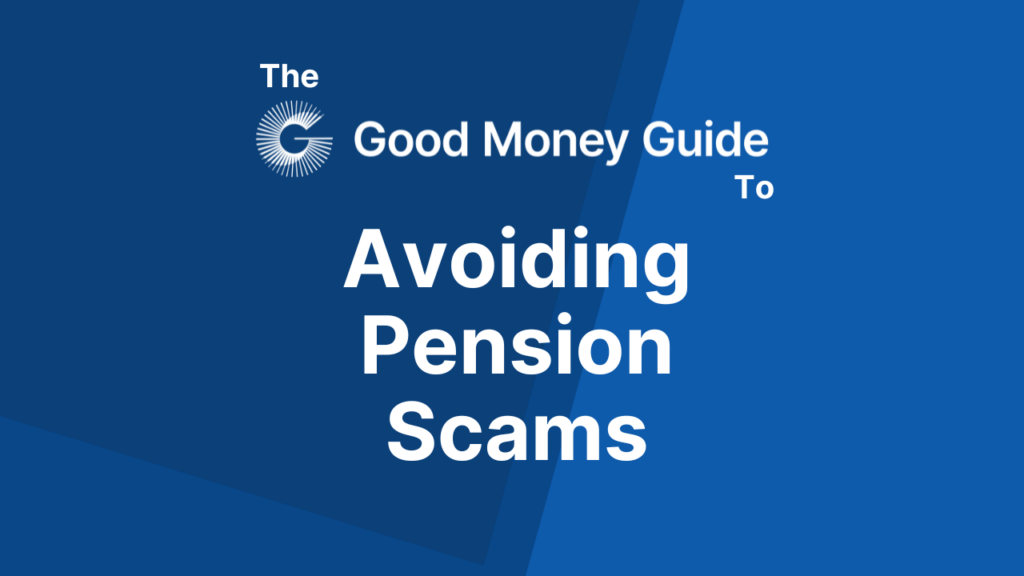Millions of Britons are still at risk of losing their retirement savings to fraudsters and pension scams with, reports of pension scams increased 45%, and fraudsters stealing over £2m from people in the UK in just 6 months in 2021. This was the alarming figure published by the Financial Conduct Authority (FCA) and The Pensions Regulator (TPR) in a bid to prevent more people joining the millions who have already seen their savings disappear overnight. In 2018, the average individual loss amounted to £82,000. When we first covered pension scams in 2019, the report stated that five millions people were at risk of being scammed out of their pension funds.
- Pension scams are nothing new, but they have escalated in number in recent years thanks to the freedom and choice legislation which came into force in April 2015. This allows people with defined contribution or money purchase schemes to spend their pensions with impunity from age 55.
- Members of defined benefit schemes are not afforded such freedom and so in response many have been tempted to leave the relatively safety of a final salary plan, in favour of accessing the cash or investing it elsewhere.
- These two factors have combined to create a fraudster feeding frenzy, in which they offer unsuspecting people, with huge, accessible pots of cash, all manner of weird and wonderful investment ‘opportunities’.
The FCA/TPR research found pension savers were tempted by offers of high returns in investments such as overseas property, renewable energy bonds, forestry, storage units or biofuels. Nearly a quarter (23%) of the 45-65-year-olds questioned said they would be likely to pursue these exotic opportunities if offered them.
- Related Reading: ISA Scams and how to avoid them.
However, the FCA says such unusual investments are ‘high-risk and unlikely to be suitable for pension savings’.
If the offer of an exotic investment fails to tempt a potential victim, the FCA says fraudsters offer to access pensions before age 55 – this is also known as pension liberation. One in six (17%) 45 to 54-year-old pension savers said they would be interested in an offer from a company offering early access, despite the reality that taking such action almost invariably results in a crippling tax bill.
Pension scam warning: the cold call
Most scams are born from cold calls and these are incredibly common; Citizens Advice says nearly 11 million calls were made last year. In January this year, the UK finally outlawed unsolicited pensions cold calls, and anyone caught doing so is liable to a £50,000 fine.
However, the ban could prove futile if the FCA’s research is anything to go by.
The watchdog says nearly one quarter (23%) of all those surveyed would talk with a pensions cold caller. A similar amount said they would ask for website details, request further information or find out what the cold caller is offering.
Kate Smith, head of pensions at Aegon, says no one is immune from scammers, adding:
“There’s no point dismissing this as an issue that only happens to other people; being duped by pension scammers can happen to anyone. The number of scams that have been prevented is a drop in the ocean to the potential five million at risk of being scammed. Much more still needs to be done to get the message out there.
There are steps you can take to protect yourself. Smith recommends taking the FCA’s quick quiz to identify if you might be at risk. There is also more information on TPR’s website.
Pension scam warning signs
|
Source: The Pensions Regulator
How to protect yourself from pension scam
|
Source: Financial Conduct Authority
Where to report a pension scam
One of the most frightening factors about scams is how people don’t report them. In our 2020 survey into fake financial advertising, we found that only 20% of people report a scam if they spot one.
If you suspect a pension scheme is a scam you can report it to the FCA via their pension scam form on their website. You should also report pension cold calls phone numbers to the Information Commissioner’s Office (ICO) so that it can be investigated.

Richard is the founder of the Good Money Guide (formerly Good Broker Guide), one of the original investment comparison sites established in 2015. With a career spanning two decades as a broker, he brings extensive expertise and knowledge to the financial landscape.
Having worked as a broker at Investors Intelligence and a multi-asset derivatives broker at MF Global (Man Financial), Richard has acquired substantial experience in the industry. His career began as a private client stockbroker at Walker Crips and Phillip Securities (now King and Shaxson), following internships on the NYMEX oil trading floor in New York and London IPE in 2001 and 2000.
Richard’s contributions and expertise have been recognized by respected publications such as The Sunday Times, BusinessInsider, Yahoo Finance, BusinessNews.org.uk, Master Investor, Wealth Briefing, iNews, and The FT, among many others.
Under Richard’s leadership, the Good Money Guide has evolved into a valuable destination for comprehensive information and expert guidance, specialising in trading, investment, and currency exchange. His commitment to delivering high-quality insights has solidified the Good Money Guide’s standing as a well-respected resource for both customers and industry colleagues.
You can contact Richard at richard@goodmoneyguide.com




